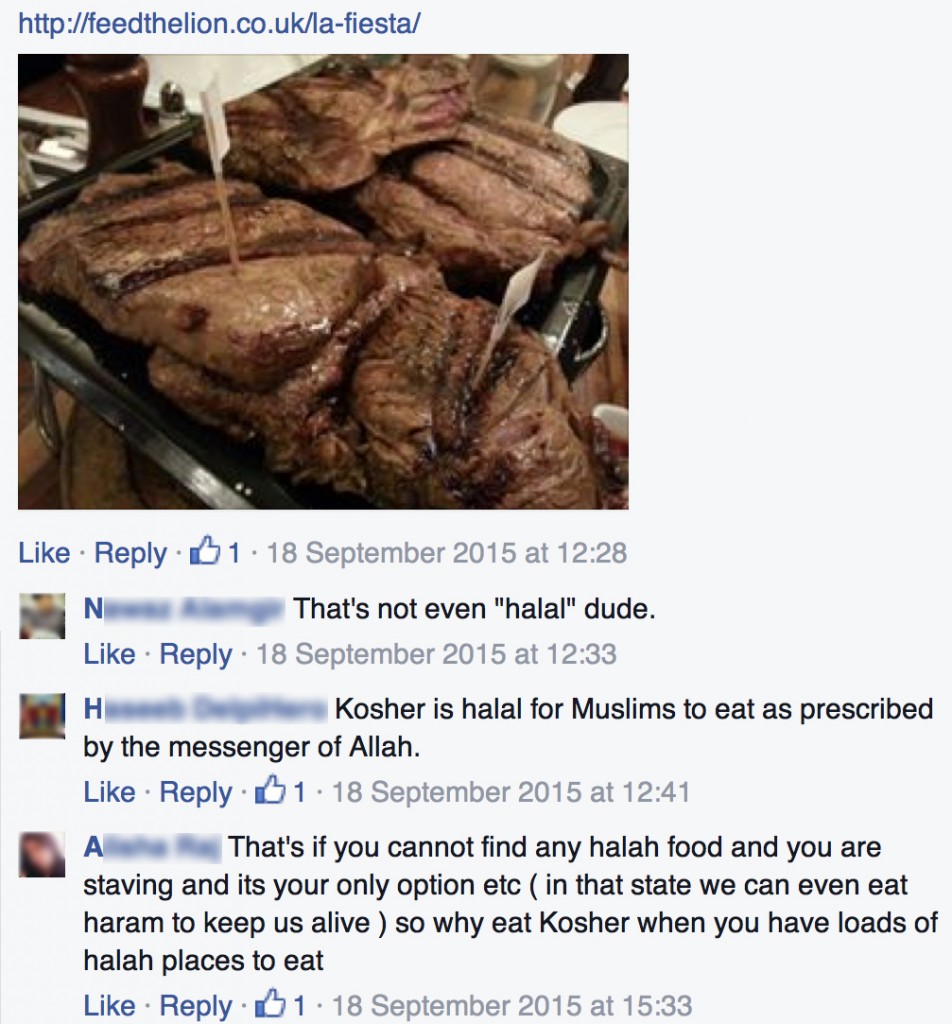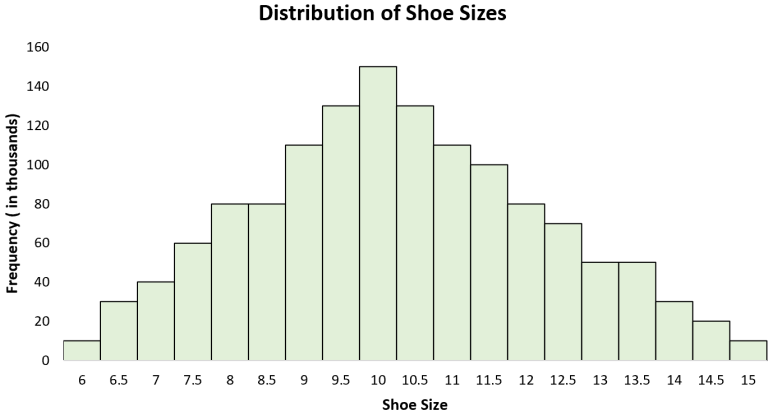Can Muslims Eat Kosher?
Muslims and Jews have a common religious heritage and the two religions share many similarities. One of the most interesting questions that arises between the two is: can Muslims eat Kosher food? The answer is yes, as long as the food does not contain any ingredients that are religiously forbidden in Islam. Kosher food is prepared according to strict standards of cleanliness and purity, and many of the same dietary laws that apply to Jews also apply to Muslims. This means that in general, Muslims are allowed to eat Kosher food that is prepared according to Jewish dietary laws. However, it is important to note that some Muslims choose not to eat Kosher food out of respect for their own religious beliefs.
What is Kosher Food?
Kosher food is a set of food regulations observed by Jews based on religious dietary laws. It is derived from the Hebrew term “Kashrut,” meaning “fit” or “proper.” The specific regulations of kosher food are complex and have been developed over centuries. Generally, kosher food is classified into three categories: meat, dairy, and pareve. Meat products are not allowed to be eaten together with dairy products. Additionally, all animals must be slaughtered according to strict procedures, and only certain cuts of meat from specific animals can be eaten. Furthermore, certain types of fish and seafood are allowed, while others are forbidden. In addition, all food must be prepared using certain utensils and in certain ways.
Muslims also have dietary laws, known as halal, which are similar to kosher food regulations. Halal generally prohibits the consumption of pork and alcohol, and all animals must be slaughtered according to Islamic ritual. Therefore, Muslims are allowed to eat kosher food, as long as the food is cooked according to halal regulations. Ultimately, both halal and kosher food regulations are designed to ensure that the food is safe, clean, and nutritious.
What is Halal Food?
Halal food is food that is permissible for consumption according to Islamic law. This includes any type of meat, seafood, dairy products, fruits, and vegetables. In order to be considered halal, the food must be prepared and processed in a certain way. This includes using halal-certified ingredients and avoiding any non-halal ingredients such as pork or alcohol. While the exact rules and regulations vary from country to country, the core idea is that all food must be raised, grown, and prepared according to the halal guidelines.
In contrast to halal food, kosher food is food that is permissible for consumption according to Jewish dietary laws. Similarly to halal food, kosher food must be prepared and processed in a certain way, and it typically excludes any non-kosher ingredients.
While the two dietary laws are different, there is a lot of overlap between them. For example, many kosher and halal foods are similar, such as certain types of fish, fruits, and vegetables. Additionally, many of the same animals are considered acceptable to eat, such as cows, sheep, and chickens.
So, can Muslims eat kosher food? Generally speaking, yes. While there are some restrictions, most kosher food is permissible for Muslims to eat, as long as it is properly prepared and does not contain any non-halal ingredients. Therefore, Muslims can eat kosher food, but should always check the ingredients to ensure that it is halal certified.
Similarities and Differences between Kosher and Halal Foods
It is commonly believed that Kosher and Halal foods are the same, but in reality, there are many differences between the two. Kosher is a set of dietary laws and regulations observed by Jews, while Halal is a similar set of regulations observed by Muslims. Both have similarities in terms of what can and cannot be consumed, but there are also a number of differences between the two.
Kosher foods must adhere to a strict set of rules and regulations. It is prohibited to eat meat and dairy products at the same time, and animals must be killed in a humane way. Kosher foods must also be prepared according to specific criteria, such as ensuring that all utensils used for preparing the food are kosher.
Halal foods, on the other hand, are not as strictly regulated. It does not prohibit the consumption of meat and dairy products at the same time, but it does have a few regulations. For example, animals must be slaughtered in a humane way, and food must be prepared according to a specific set of rules. Additionally, Halal foods must not contain any ingredients that are considered to be haram (forbidden).
Overall, there are many similarities and differences between Kosher and Halal foods. While both have a set of dietary laws and regulations that must be followed, there are some significant differences in terms of what can and cannot be consumed. Therefore, it is important to understand the distinctions between the two before making any dietary decisions.

Islamic Perspective on Kosher Foods
Kosher foods are those that have been prepared in accordance with Jewish dietary laws. But can Muslims eat kosher food? The answer is yes, they can. The Islamic faith does not have any restrictions on eating food that is prepared in accordance with Jewish dietary laws. In fact, many Muslims embrace the idea of eating kosher food due to its strict attention to cleanliness and care in its preparation.
The Islamic perspective on kosher food is that it should be treated with respect and that it should be eaten with gratitude and thankfulness for the blessing of the food. Muslims are encouraged to seek out kosher food as it is considered to be of a high quality, and free from any element of contamination or impurity. Kosher food is also seen as being more nutritious and healthier than non-kosher food, and so it is an ideal choice for those wishing to maintain a healthy lifestyle.
Kosher food is also seen as an ideal choice for Muslims who may have difficulty accessing halal food. Halal food is a dietary requirement for Muslims, but it can be difficult to find in some locations. For these individuals, kosher food is an excellent alternative as it is already prepared in accordance with Islamic dietary laws.
Overall, it is clear that Muslims can eat kosher food. In fact, many Muslims see it as an ideal choice due to its strict attention to cleanliness and care in its preparation, the high quality of the food, and its potential health benefits. Those wishing to adhere to Islamic dietary laws can feel confident in seeking out kosher food as an alternative.
Jewish Perspective on Halal Foods
In today’s world, religious dietary restrictions are an important factor to consider when planning meals. Many people are familiar with the ‘halal’ and ‘kosher’ labels, which refer to foods that meet specific religious dietary laws. But what about the intersection between the two? Can Muslims eat Kosher?
From a Jewish perspective, the answer is yes. Kosher dietary laws, or Kashrut, are based on the books of Leviticus and Deuteronomy in the Torah. As such, halal and kosher food are often similar, as both have restrictions on what can and cannot be eaten. However, Kashrut has slightly stricter guidelines, as it prohibits the consumption of certain animals, such as pork, and requires that animals slaughtered for food must be killed in a specific way.
In terms of halal foods, Muslims are allowed to consume kosher foods, as long as they are not mixed with or cooked with ingredients that are not halal. For instance, if a halal dish is cooked with wine or lard, it would no longer be considered kosher. Additionally, many Muslims choose to abstain from eating any animal-based products, such as dairy or eggs, that are considered permissible by Jewish dietary laws.
Ultimately, the decision to consume kosher foods is a personal one for Muslims. By understanding the similarities and differences between halal and kosher dietary laws, Muslims can make informed decisions about what they choose to eat.
Cultural and Religious Considerations of Eating Kosher/Halal Foods
Eating Kosher or Halal is a matter of cultural and religious considerations for many Muslims and Jews. For those who observe the dietary laws of their faith, there are several differences between the two. While they both forbid certain foods such as pork and shellfish, the preparation of the food is also taken into account. Halal requires that the food be prepared in a certain way, including a blessing and a ritual slaughter of the animal. Kosher has similar rules, but the preparation is slightly different.
In addition, there are differences in the types of foods that are allowed. Halal allows a certain type of meat that is not permitted in Kosher diets. These are just a few of the distinctions between the two dietary laws, and it is important to understand these differences in order to make an informed decision when deciding what to eat.
For those who observe either of these dietary laws, it is important to be aware of what is and is not allowed. It is also important to understand the cultural and religious considerations of eating Kosher or Halal foods. By understanding the differences between the two, you can make an informed decision about what to eat and how to prepare it.
FAQs About the Can Muslims Eat Kosher?
1. Is there a difference between Kosher and Halal dietary restrictions?
Answer: While there are similarities between the two dietary restrictions, there are some key differences. Kosher dietary laws are based on the Jewish faith, while Halal dietary laws are based on Islamic teachings.
2. Are there any foods that are considered both Kosher and Halal?
Answer: Yes, there are some foods that are considered both Kosher and Halal. These foods include vegetables, fruits, grains, and legumes.
3. Are there any foods that are forbidden for both Kosher and Halal diets?
Answer: Yes, there are some foods that are forbidden for both Kosher and Halal diets, such as shellfish and pork. Additionally, Muslims are not allowed to consume alcohol, while Kosher laws permit it in certain circumstances.
Conclusion
In conclusion, Muslims can indeed eat kosher food. Although the laws of kashrut are strictly followed by observant Jews, they are in accordance with the dietary restrictions of the Islamic faith. As such, observant Muslims should be able to purchase and consume kosher food without any issue. Muslims should, however, be aware of the laws of kashrut and be sure to purchase only certified kosher products to ensure they comply with their faith.




